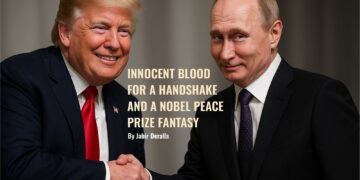Minister of Foreign Affairs Bujar Osmani told TV21 on Thursday evening that Bulgarians in North Macedonia should feel like free citizens with equal rights.
“Bulgarians in North Macedonia should absolutely feel like free citizens, with their own community, and equal rights. If necessary, they will be mentioned in the Constitution,” Osmani said.
Regarding the fact that this would require constitutional changes, the Foreign Minister underlined that there are no reservations about classifying Bulgarians as a separate ethnic community.
“We have no reservations about classifying them as a separate ethnic community, if that’s what they want,” Osmani noted.
However, he stressed, such a request hasn’t been made.
“They haven’t asked for this. We haven’t discussed it,” Osmani added.
Concerning reactions regarding the rights of the Bulgarian community in North Macedonia, on Wednesday he said that “representatives of the civil society organizations should immediately contact the census bodies and request appropriate graphing within the census in order to determine the quantitative, demographic and geographical distribution of this community, which would significantly contribute to the creation of future policies both of the Government and of relevant units of local self-government, and the country in general.”
However, the Director of the State Statistical Office (SSO), Apostol Simovski, on Wednesday noted that all census operations conducted since 1948 included a code on Bulgarian ethnic origin.
“We have data on this particular ethnic origin and we’ll have it in the future. It is the right of the people to declare themselves the way they want and we must not interfere,” Simovski told MIA.
On Monday, Bulgarian President Rumen Radev met with chiefs of the country’s special services, urging them to undertake timely measures for adequate protection of the rights of nationals outside of Bulgaria, who are exposed to attacks only because of their national self-determination.
The Bulgarian President’s reaction, President Stevo Pendarovski said on Tuesday, violates a basic principle in international politics, that is the principle of non-interference in the domestic affairs of other countries.
Moreover, he stressed that he has not been briefed by relevant intuitions on any violations of the human rights and freedoms of Macedonian citizens, based on their ethnicity.
Prime Minister Zoran Zaev also noted that interference of one country in another is inadmissible. He firmly denied that citizens in North Macedonia have been attacked because they declare themselves as Bulgarians, underlining that all citizens in the country have equal rights.
“Interference of one country in another is inadmissible. This is declared in the Treaty on Friendship, Good-Neighborliness and Cooperation with Bulgaria. Moreover, in talks that are ongoing we’re taking a step further in terms of non-interference as regards minorities, because these rights are decided upon through the Council of Europe, the court of the Council of Europe. But, definitely, there’s neither a need for nor should any courts be involved, because if any citizen has been denied any right or if their rights are not equal with the rights of other citizens in the Republic of North Macedonia, we’re available to respond as institutions,” Zaev said on Tuesday.















